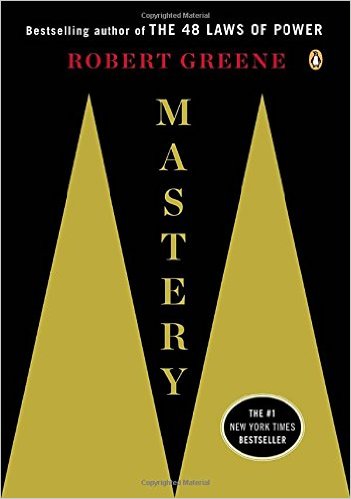Learn how to achieve success by learning from history’s geniuses

Most people believe that in order to accomplish great things in life, you need to have the necessary talent. This is not true as studies have shown. It has been shown that blazing talent in young children rarely leads them to remarkable achievement later. Those who show little brilliance in school on the other hand often accomplish far more.
So if talent is not the key to achieve success, what is? To find the answer we just have to see what all great masters in history did. Whether it is Einstein, Goethe, Mozard or Edison, the great masters all followed similar steps to success.
What is mastery?
Mastery means to reach a level of practice where your mind and body become one, where you act without thinking. This enables masters to see the big picture, not just the details.
According to one theory, our primal ancestors acted directly on their reflexes. The abstract thought which gave us the ability to suppress certain reflexes came later.
A master unifies in a sense his mind and body in a way that he can respond to situations automatically, without thinking about it.
Follow your inner calling
To reach mastery you first have to find your field of interest. To do so it is immensely important to trust your inner guide. Have you had that feeling that a certain field is just made for you? Don’t dismiss that feeling, follow up on it.
Many of history’s geniuses experienced a moment of clarity where everything “clicked into place” and they found their vocation. Some even heard an inner voice telling them what to pursue.
The first goal should be to learn, not earn money
Benjamin Franklin refused to take his father’s lucrative candle-making business and instead chose to work at the printing business. This meant less money and a longer apprenticeship but Franklin knew he would learn how texts were composed, a skill which would serve him greatly later.
Charles Darwin did something similar when he rejected places at medical school and well-paid jobs to work for HMS Beagle as an unpaid naturalist instead. His observations made there eventually lead to his famous theory of evolution.
There are a lot more examples from history but we can see the pattern, a job that gives you an opportunity to learn can be worth doing even if it doesn’t pay well.
Get a mentor who shows you the way
In this age where information is readily available through the Internet, why is a mentor so important? Because you will use your time and resources much more effectively when someone guides you and gives you immediate feedback.
One of the most important steps of mastery is to seek out a mentor which you admire and which has done something you’d like to achieve. And then absorb his knowledge like a sponge.
Once you are done learning, challenge the rules you learned before
Once you finish your apprenticeship you should embrace the open-mindedness and fearless mentality of a child. Break the rules and have the audacity to challenge preestablished paths. This will enable you to grow and innovate in your field, achieving mastery in your unique way.
Broaden and train your mind
Our tendency is to think too narrowly. Our habits and society have shaped our thinking to the point where hardly anything creative comes out of it. Ask yourself the question: “Is this really the best way to solve this problem?”
Another important point of creative thinking is the diffused mode. Einstein claimed that playing the violin lead him to the solution of theoretical problems. Similarly, taking a walk can give the mind enough space to come up with creative new ideas.
